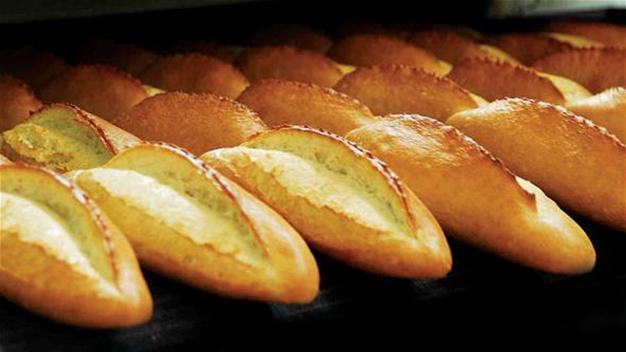GMO material discovered in bread in southern Turkey
Burak Coşan – ADANA

Genetically modified organisms (GMO) have been found in bread in the southern Turkish province of Adana, causing alarm among locals and prompting a statement from Food, Agriculture and Livestock Minister Faruk Çelik.
GMO soy was found in the bread’s preservatives that are produced by a company in the province.
“GMO soy can only enter Turkey in order to be used as animal food. It’s forbidden to use it as human food.
But ill-intentioned people were able to use it in human food. We have never come across a situation like this regarding bread,” an expert told daily Hürriyet on March 20.
News of the GMO bread came after a food engineer from Adana contacted daily Hürriyet with the news.
Speaking about the allegations, the owner of the company in question said they had sold the product to 80 percent of Adana’s bakeries.
“We are selling our preservative material to 80 out of 100 bakeries in Adana. It’s the best product and the bakers are very happy about it,” the owner of the company said regarding the preservatives, refraining from answering questions as to whether the product was bad for health or whether it had been approved by the ministry.
Hürriyet then obtained the product before sending it to a test center for examination, which proved the allegations correct.
Officials at the test center said the results had been sent to the Food, Agriculture and Livestock Ministry in accordance with a law regarding GMO material found in food.
“A GMO analysis was made on the preservative sample sent for a test. A DNA extraction was initially carried out for analysis. Then we moved onto a GMO analysis and GMO [35S, NOS, FMV] was found in all three gene areas,” the report sent from the center read.
Chamber of Agriculture Engineers board member Murat Arslan said GMO was generally found in soy, corn and canola but that they had never seen it in bread or wheat.
“We didn’t know that soy including GMO preservatives were being used. Commercial businesses might be involved in these things in order to produce profit. Maybe they chose this method because soy with GMO is more expensive,” Arslan told daily Hürriyet, adding that soy was being produced in the United States and that a significant portion of it included GMO.
“According to biosecurity laws, it’s forbidden to use soy with GMO as a food material. However, we don’t know if they are being used in human food after entering Turkey as animal food,” he also said.
The head of the chamber, Özden Güngör, said Turkey imported 2.5 million to 3 million tons of soy, as Turkey’s soy production was only around 125,000 tons.
“We don’t know if the imported products are used in human food. Much better control is needed. However, checks are not effective in Turkey. There are 675,000 food businesses and 5,000 auditors. There are companies who are not subjected to checks for one year,” Güngör said.
The head of International Association for Cereal Science and Technology, Professor Hamit Göksel, said inserting GMO into soy could only be done illegally.
“We previously warned authorities on the issue. We said, ‘You can’t allow this to be used in human food, but ill-intentioned people could use it in human food.’ There are no boundaries to cheating in food. Those who act with the purpose of more profit are able to play with human health,” Göksel said.
Those who do not comply with the Biosecurity Law face up to 200,000 Turkish Liras in fines or 12 years in prison.
Minister Çelik has released a statement on the issue on March 20, saying that samples were taken from the company and the test results will be announced soon.
“GMO usage is absolutely forbidden in our country. We made 12,286 GMO checks in 2016-2017. GMO was found in 112 products. Complaints were filed regarding those,” Çelik said.
He added that the related preservation production company was inspected eight times and no negative situation was determined.
 Genetically modified organisms (GMO) have been found in bread in the southern Turkish province of Adana, causing alarm among locals and prompting a statement from Food, Agriculture and Livestock Minister Faruk Çelik.
Genetically modified organisms (GMO) have been found in bread in the southern Turkish province of Adana, causing alarm among locals and prompting a statement from Food, Agriculture and Livestock Minister Faruk Çelik.